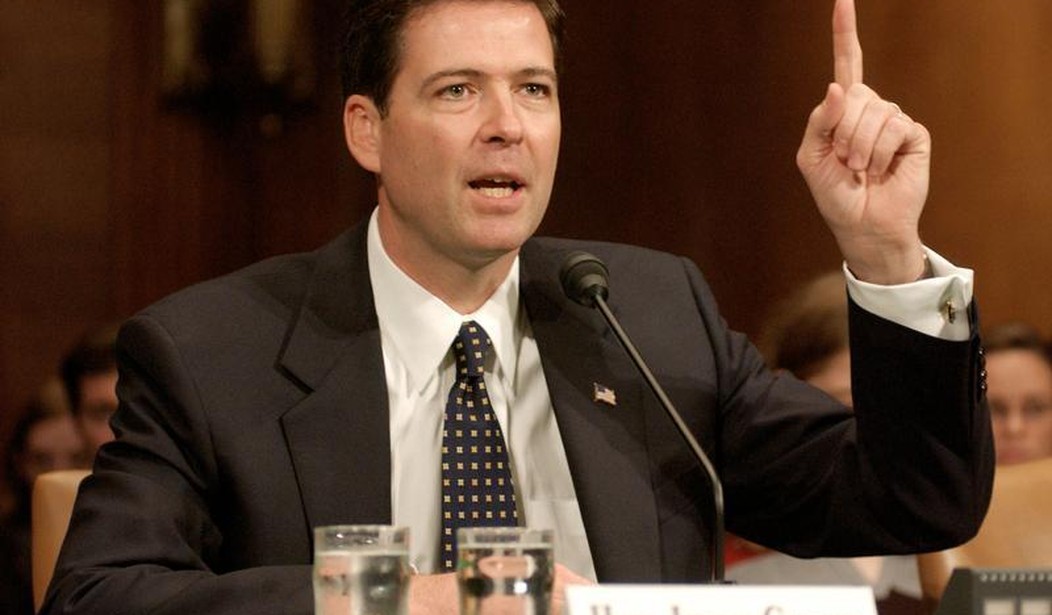One could look at the Fourth of July weekend, calm despite warnings of heightened risk for a terror attack, and say that ISIS either failed in its attempts to attack the homeland or was deterred by the massive security increases.
On the other hand, the fact that not even the lowest-hanging fruit connected to the jihadi network staged a one-man attack reveals that the “lone wolves” are better coordinated than the public is led to believe.
“That’s going to happen here,” Sen. Jim Risch (R-Idaho), a member of the Senate Intelligence Committee, told CNN today in reference to the Tunisia beach attack just before the ISIS anniversary in June, in which a gunman killed 38 people, mostly Brits. “I don’t think there’s any question about that.”
Of recent attack plots uncovered in the United States, the senator said, “some were quite imminent …within days, one within hours or minutes.”
The Defense Department has had all facilities on increased alert — Force Protection Bravo — since May.
But Risch noted that we’re at a “point in history where encryption taken a very sophisticated turn” — as ISIS steers online adherents to encrypted browsers and chat messaging systems that render them anonymous. (See: ‘War Is Deceit’: Tipsheet Tells Jihadists How to Shake Off Intel Agencies During Online Ops)
That was the focus of a Senate Judiciary Committee hearing today, at which FBI Director James Comey called Twitter “almost a devil on their shoulder all day long” of would-be jihadists, “saying: Kill, kill, kill, kill.”
“Al-Qaeda would never vet an operative by tasking them. ISIL says, ‘go kill, go kill; here’s a list of military members you can go kill, go do it,'” Comey said. “We are stopping these things so far through tremendous hard work, the use of sources, the use of online undercovers. But it is incredibly difficult. I cannot see me stopping these indefinitely.”
“So I’m not trying to scare folks. I just want people to know this is a change in my world, in the top responsibility of the FBI, that implicates this ‘going dark’ problem.”
The dark area means even if they were armed with a court order to access the communications, the feds still lack the technical ability to access them.
Comey later told the Senate Intelligence Committee, “We have disrupted just in the last few weeks very serious efforts to kill people in the United States.”
Senate Intelligence Committee Chairman Richard Burr (R-N.C.) said the high threat lingers because Ramadan lasts “a few more weeks”; the Islamic holy month ends July 17.
“ISIL currently communicate on Twitter, sending communications to thousands of would-be followers right here in our country,” Deputy Attorney General Sally Yates told the Judiciary Committee. “When someone responds and the conversations begin, they are then directed to encrypted platforms for further communication, and even with a court order, we can’t see those communications. This is a serious threat, and our inability to access these communications with valid court orders is a real national security problem.”
“This is not your grandfather’s al-Qaeda; this is a group of people using social media to reach thousands and thousands of followers, find the ones who might be interested in committing acts of violence and then moving them to an encrypted — end-to-end encrypted messaging app,” Comey added. “Our job is to look at a haystack the size of this country for needles that are increasingly invisible to us because of end-to-end encryption. This is something we have to talk about as a people.”
“The FBI is not some alien force imposed upon the United States; we belong to the American people. The tools we have are only tools given to us by the American people through this Congress.”
However, the FBI director admitted he didn’t come before Congress with a solution. “Maybe this is too hard, but given the stakes, given the importance of security on Internet and public safety for the good folks of this country, we gotta give it a shot,” he said, referencing tech thinkers in Silicon Valley who might be able to come up with a solution.
Senate privacy hawk Ron Wyden (D-Ore.), though, warned against opening more technology “back doors.”
“Universal strong encryption will protect Americans’ personal information AGAINST criminals, foreign governments and those who would use that data to do our country harm,” Wyden wrote. “It’s time to stop attacking the technology and start focusing on real solutions to the real threats facing our nation.”









Join the conversation as a VIP Member